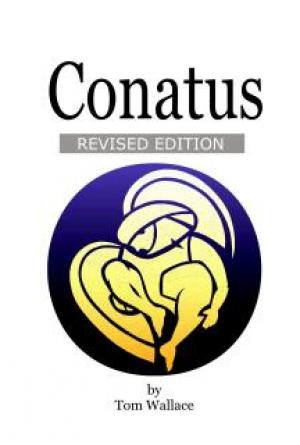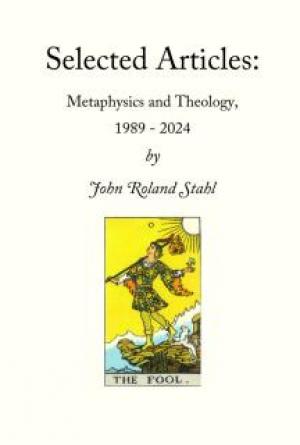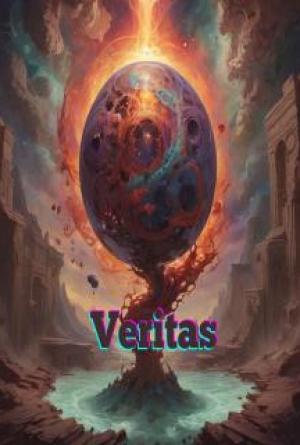Conclusion
‘Our greatest illusion is to believe that we are who we think ourselves to be.’
Henri Amiel
‘There will come a time when you believe everything is finished. That will be the beginning.’
Louise L’Amour — Lonely on the Mountain
Eros and Agapé
Eros/Agapé is of course the main division of this work. We have seen that Eros is favoured in our culture and this is reflected in abstract and unachievable goals. Agapé, by contrast, is love looking to make connections with all that is around us. This side of life is very much neglected. Many of the boundaries, the economies, identified in this work have been reflections of this fundamental split. However, both are needed and both can be brought back into balance. Eros, we might say, is the adventure of the soul in the world, even although we have identified soul more with the Earth. But in this is the balance, the adventure lies much closer to home. Firstly, just in seeing. Seeing the fragile beauty in all things. Seeing the ordinary things in life transformed into the extraordinary. Then, responding. So, Eros, properly brought within the bounds of Agapé, is a welcome and essential part of us.
The Two Questions
We introduced two questions at the start of this work. The first concerned the satisfaction of my own desire. The second was about how I might rationalise that satisfaction or accommodate it with the needs of the wider world in which we live. We described the first question to be a central concern of psychoanalysis whilst the second is the concern of Marxism, or Socialism generally. We are now in a position to go back to these initial questions and summarise where the argument of this work has brought us.
Psychoanalysis associates with the individual, Marxism with collectives. Psychoanalysis is the way to attend to pleasure and Marxism the way to attend to needs. But psychoanalysis suggests that we have abdicated our ecstasy when just infants. Happiness is something we feel we must be constantly seeking, so that desire and ecstasy can be recovered.
The recovery of ecstasy is really just a myth. It might describe something of the playfulness and delight that can be achieved when we are able to forget ourselves for a while in pleasure — in particular when we greet the world with awe and recognise its fragile beauty. But more generally, the loss and recovery of ecstasy are just secular versions of the fall and redemption of Christianity. ‘Recovery of ecstasy’ is just an abstraction and places pleasure as always somehow beyond us. Why not instead the familiar animal pleasures of ‘feeble flesh’? The occasional blue sky, sunshine, rest, companionship, idleness? Real life is made up of these haphazard pleasures - not a sterile eternal happiness of epic proportions.
The state of our soul and who we are in our essence are not things given to us to know. We inevitably have a delusion of who we are and sometimes this is greatly at odds with how others see us. The delusion may be harmless enough and it might actually make us ‘better’ people in terms of being good citizens and morally upright, but it is a delusion nonetheless. Or maybe the delusion we have of ourselves needs to be examined and called into question. We identified four aspects of self-analysis from Erich Fromm and noted that there is a lot that we would be best to let go of — if only to make ourselves happier, let alone being any use to others or to the world at large.
Seeing ourselves a little and letting go is the place to start — the means by which our essence finds its adventure in the world. It is not about trying; striving to do something that is not yet achieved. It is opening a space within ourselves that allows the grace already in the world to become manifest to others and to ourselves.
Simon Parke addresses this point:
‘The world is not the problem…the world is quite perfect. It is the performers who are the problem, the activists who want to make external things better. They are not at home to themselves — but insist on trying to lead others home. This is why things stay the same. Solutions imposed from outside are not solutions. They bring change — but not transformation. For you cannot promote transformation beyond the degree of internal transformation of yourself.’
Simon Parke — The Beautiful Life (my emphasis).
It is said by some that art and angels are the messengers between the unseen world and the world of phenomena. (The original meaning of the Greek ‘daimon’ was as a messenger between the divine and human worlds.) Whether you choose to believe in angels, or agree with this function of art, the idea still stands that somehow mystery is communicated to us. If it were not so, there would be no becoming — indeed no world at all. Part of seeing is to see the ‘angels’ — those people we meet who communicate something from beyond themselves. It is the ‘mustard seed moments’ of which Simon Parke speaks. A truth is brought to us just at a time when we are ready to receive it. Likewise, for art. The artist, in helping us to see, opens us to new beauty, and then the cascading consequences of this where further beauty is perceived and creativity inspired. Perhaps the soul herself is a further messenger, from mystery to our consciousness. We look to Matthew Fox to summarise this section for us and to once more assert the link between personal pleasure and the needs of others — that is, the political dimension of desire:
‘A sensual spirituality, then, is a political spirituality: it is about sharing the joys of the earth, of Creation. It is not - cannot be - about owning or accumulating power, immortality, control or rewards. It is sharing the pleasures of the earth by way of justice.’
Matthew Fox — Whee! We, Wee All the Way Home
The Pernicious Dichotomies
We looked at polarities, or pairs of opposing views, in the early chapters of this work and in Chapter 4, mentioned Lawrence Cahoone’s three ‘pernicious dichotomies’. These are — subject and object, the split between the individual and the individual’s relationships with others and the split between human culture and the natural realm.
The subject object split was examined in some detail as it is reflected so much in the way our culture views life. However, I want to draw out one further observation not given earlier in the text. This is to say that there is a more subtle interpretation of this dichotomy to be found. To understand it, we need to refer back first to what was said about existence and non-existence. We noted that our culture favours the idea of existence being brought forth out of a literal nothing, and contrasted this with existence emerging from chaos, or to put it another way, formlessness. We might say that the contrast is really between existence and emptiness rather than existence and non-existence. The universe then has emptied itself of form in order to become form. Our relationship with form therefore (that is, the subject object relation) is a more complex one than might first appear. So many of the authors quoted in this work talk about letting go or a setting aside of things — both material things and also our consistent habit of making ideas into images and abstract things which we then set up as ‘objects’ to be obtained. All of our quotes and indeed all of this work is inviting us to take away form and enter into formlessness. New form can then be created through us. It is not us who create form, as to believe this would make it into another compulsion - an ego striving to be something. Form and formlessness meet within us and we become form for others, that is, we become grace and all that flows from grace.
Cahoone’s second dichotomy is addressed best I think by quotes from Simon Parke. In one he says simply, ‘We hurt others by our unexamined pain.’ And at the end of another quote is the simple sentence, ‘We see outside us what is inside us.’ Both of these simple sentences remind us firstly that much of the work of self-analysis is not about trying to discover or rediscover our ecstasy, but to understand our pain and our anger and our strange habitual responses. It is this blindness in ourselves that makes our relations with others difficult. Part of the problem, which refers back to our original two questions, is that things are stated from a purely individual point of view. It is my pleasure that I seek and it is the concern that the suffering of others gives me. The individual is essentially an abstraction. Ultimately, I am only myself in relationship with other selves. Pleasure, as I hope has been demonstrated, only makes sense within this broader context.
Cahoone’s third dichotomy is about our dealing with the wider world of nature. Again, it might appear not to relate to our two questions — of desire and of need. However, Chapter 13 - The Soul Seeks Beauty First and Chapter 14 — Start with Awe, remind us of how intimately connected are our relationships with nature and our relationship with each other and with ourselves. Matthew Fox, amongst others, reminds us of our need for silence and for solitude and often these are sought within nature. Our relationship to the natural world is not one of standing outside it and trying to control it. Rather, wild nature resides right within us. Note how Simon Parke describes the essence of each of us as ‘wonderful and wild’. When he speaks of our soul, it is of a ‘… cascading waterfall of experience, all power and fluidity, all change and force, all energy and life, a crashing vastness of possibility and engaged at every level of our physical and psychological well-being.’ The conclusion is surely that our inner essence is linked with the wider world of nature just as much as with our own bodies.
Images and Ideals
We have noted the long-standing tendency to create perfect forms out of earthly virtues. It might be that these are projected onto a God or gods. Even without a religious belief though, even starting from mystery, there is a sense in which attributes might simply be projected and idealised. We use this as a means of seeking justification for moral absolutes, images of how we might wish the world to be.
Why not instead start with the reality of our own incarnation in the world — with ‘Amo: volo ut sis.’ (I love you: I will that you be.) Grace Jantzen, who we have quoted throughout this work, regards this phrase (from Hannah Arendt) as the ultimate ground for ethical action. Notice that ‘will’ here is used as a verb, and also that ‘to be’ is used in the predicative sense (and not to mean simply to exist). In using the phrase then, we are saying that we are creatively engaged to allow the other person to be themselves, to be all they can be, to flourish and live their lives fully. It is all action, in the truest sense of Agapé. It is mediated through us as a means of grace. But this is a grace already fully there in the world. For us to achieve this requires only for us to open a space within ourselves that will allow grace to operate. We look to deal with others as individuals rather than abstract collections of people. In knowing people by name, we respond to their face, we greet them as equals, we see their beauty, we have compassion with them in their vulnerability, because it is a vulnerability that we all share. We celebrate their humanity and in doing so, celebrate our own.
When we looked at meaning in Chapter 12, we noted that an over-arching meaning could be discerned from relationships but that this is nonetheless not a transcendent meaning. Likewise with beauty, whilst partly accepting beauty as an image or an ideal, we nonetheless saw actual encounters with beauty — nature, other people — as the inspiration for creating more beauty — for ‘being pleasure’. The danger is always in ‘commodifying’ these values — making them something we seek to ‘own’ or ‘appropriate’ rather than something we live. What is it that makes grace and beauty different from say equality, justice or freedom? The difference is that grace and beauty are given to us first. They are the gifts from the universe, from which equality, compassion, justice, freedom and celebration all flow.
Loving something more than Death
This comes from our quote from Martin Luther King earlier in the work. So much of our culture is obsessed with death, but at the same time in denial of that obsession. The question, which links to the main questions of the work is, what is it that we should love more than death? We return to Grace Jantzen’s contrast of natals over mortals. Simply stated then, it is the love of life over death. It might seem an obvious point, until we start to notice just how deeply ingrained the fascination with death runs in our culture. The work has traced this through a process. First, in seeing — noticing and observing — ourselves, others and nature. From there, the love for beauty, welcoming us and inspiring awe and gratitude. Exceptional beauty leads us in turn to see the beauty in ordinary things. We step outside ourselves. We seek fairness in our ordering of the world through equality. Equality is the starting point for compassion, justice and freedom. In this is our celebration and our joy. We create more beauty in the world, or rather grace works through us to create beauty. We are grace. We are the means of grace. In all this, we love life more than we love death.
What are we being asked to do?
It is very difficult for us to do nothing. We have an overwhelming drive to ‘fix’ things — to learn, or to educate, to solve problems by technical means, to devise bureaucracies in order to administer virtue and address the needs of the world. We are being told however that essentially, the kingdom of heaven is already here. Furthermore, there is not very much for us to do, except to step aside. It is for us only to open a space within and allow grace to flow. We might add here that despite the very real problems in the world, there is no need for us to strive, even although things may look desperate. It does not mean that we will not be deeply affected by circumstances, but the solution is always outside of us, even when we are the means of achieving it. The responsibility if you like is strangely lifted from us, even whilst in the human economy — a more limited world view — the burden of responsibility needs to remain. This quote from Hegel summarises this thought for us:
‘The Good, the absolutely Good, is eternally accomplishing itself in the world; and the result is that it need not wait upon us but is already in full actuality accomplished.’
Also, reflected in our closing chapters, is the idea of making all these things personal. This means saying ‘I am pleasure’, ‘I am love’ and so on. Remember Ghandi’s famous quote: ‘Be the change you want to see in the world’. When we consider these statements in the first person present tense, how do we feel about them? As expressed in the final chapter, if I am not grace, there is no grace.
Viewed from eternity, a single human life can be said to be complete in itself. There is no future in which we will be different or any past that we need regret. We are at every moment all that we ever need to be. The same might be said of the world at large. On the broadest view, how can we ever say that it should be different to what it is?
The final Delusion
Doubt is a great leveller. Why not embrace doubt whole-heartedly? We have looked at twenty-one subjects where, it is contended, our culture is mistaken in its understanding of the issues raised. Our twenty-second and final delusion though, must surely be that all of the arguments made against culture are themselves delusional.
It would have been good to have had a narrative! It would have been good to present this work as a story about a person — ideally a person who lived the ‘truth’ of what is expressed herein! Remember the little quote at the start of Chapter 21 — ‘If you want to communicate an idea, wrap it up in a person.’ Religion is always going to be more popular than philosophy — and maybe that is the reason! Generally, it has stories, it has people. So, whilst the ‘truths’ expressed may be less clearly stated, the personal appeal is undeniable.
Well, in this book we have got souls and angels and grace — all terms borrowed from religion! Atheists may balk at my use of these terms. Meanwhile, the religious may well object to the notion that, for instance, our essence is already perfect, and there is no ‘journey’ to undertake, no need for ‘salvation’ or ‘redemption’ (at least in the traditional understanding of these terms). The religious may also resent the suggestion that their particular faith is exclusively narrative. Refer back though to Grace Jantzen’s idea that a ‘natal’s’ expression will be ‘performative’ — ‘…they will tell stories’, she says. I think we need new stories now. We need stories that will be understood as purely allegorical and not mixed up with history or with philosophy or theology. Alongside, we need stories of others that show grace at work. And perhaps most of all we need to weave our own encounters with the world into stories of who we are — of our adventure of essence in the world.
At the beginning of this work I suggested that anyone searching for answers should give up that search. This, as will hopefully be obvious, does not preclude an examined life. Any program however that purports to some kind of transcendent progress, to spiritual growth or to achieving enlightenment, heaven or nirvana is doomed to failure. We have to step aside from this. The only thing to do really is to create a space in our lives, a contemplative space of silence where we are simply observers of ourselves and our relations to others. A place to reflect on our encounters with nature and with other people and even our encounters with silence and mystery itself. A place where we take time to really see ourselves in a clear light and to see our circumstances and relationships. I suggest this is always a conflicted space. Made from mystery and deriving from darkness and chaos, we inevitably live a conflicted life day by day.
To quote again from the passage of Simon Parke’s, given in Chapter 21:
‘To receive truth, I need above all things to create something new inside me, a space not previously developed. I need to create a middle space, or in-between place — somewhere that is other than both my starting essence and my claustrophobic personality.’
That then becomes the foundation for action in the world. The space of which Parke talks lies beyond the boundaries that we have defined in this work. It is the opening for grace. But from there our work within the economies of human endeavour finds its true strength.
This is a process, not a once for all event. Conflict lies not just within ourselves. There is also conflict between us and the mystery that lies beyond us. Psychologist James Hillman suggests that our soul has her own purposes and merely uses us as her host — a bit like an extreme version of Philip Pullman’s His Dark Materials. So, there will always be a conflict between essence and personality.
We finish now with a quote from Thomas Moore, which takes up this thought:
‘We think that the ego is the dominant self, and we educate ourselves to have good ego boundaries, strong identity and self-esteem. But more enchanted philosophies recognise that we are made from the depths, from beyond consciousness. We are more original than we can imagine. We are driven from a place beneath awareness, and what drives us — it has been called angel, daimon, animus, duende — hurls us toward our identity and our place in time and space.
‘W.B. Yeats saw that the daimon, the inner presence that is full of power and the ultimate source of our real creativity, is an antithetical self, an opposite, a spirit that is brought to a host precisely and utterly different from itself so that we often feel both conflict and resource in relation to the spirit that makes us passionate.’
Thomas Moore — Original Self (my emphases).
So, it is a conflict that will never be resolved. But that’s okay. No resolution is needed. Live with the doubt. Live with the mystery.







